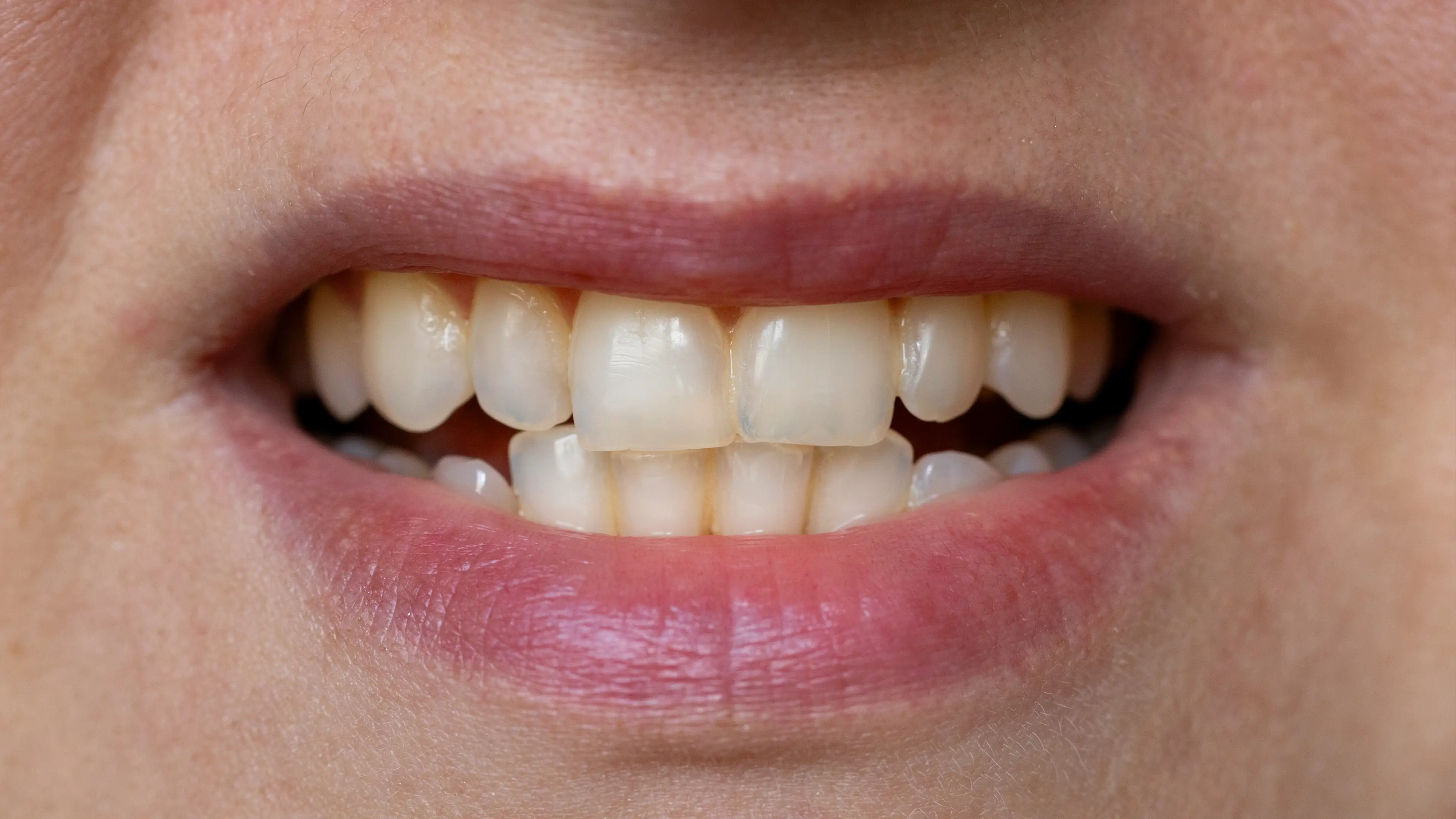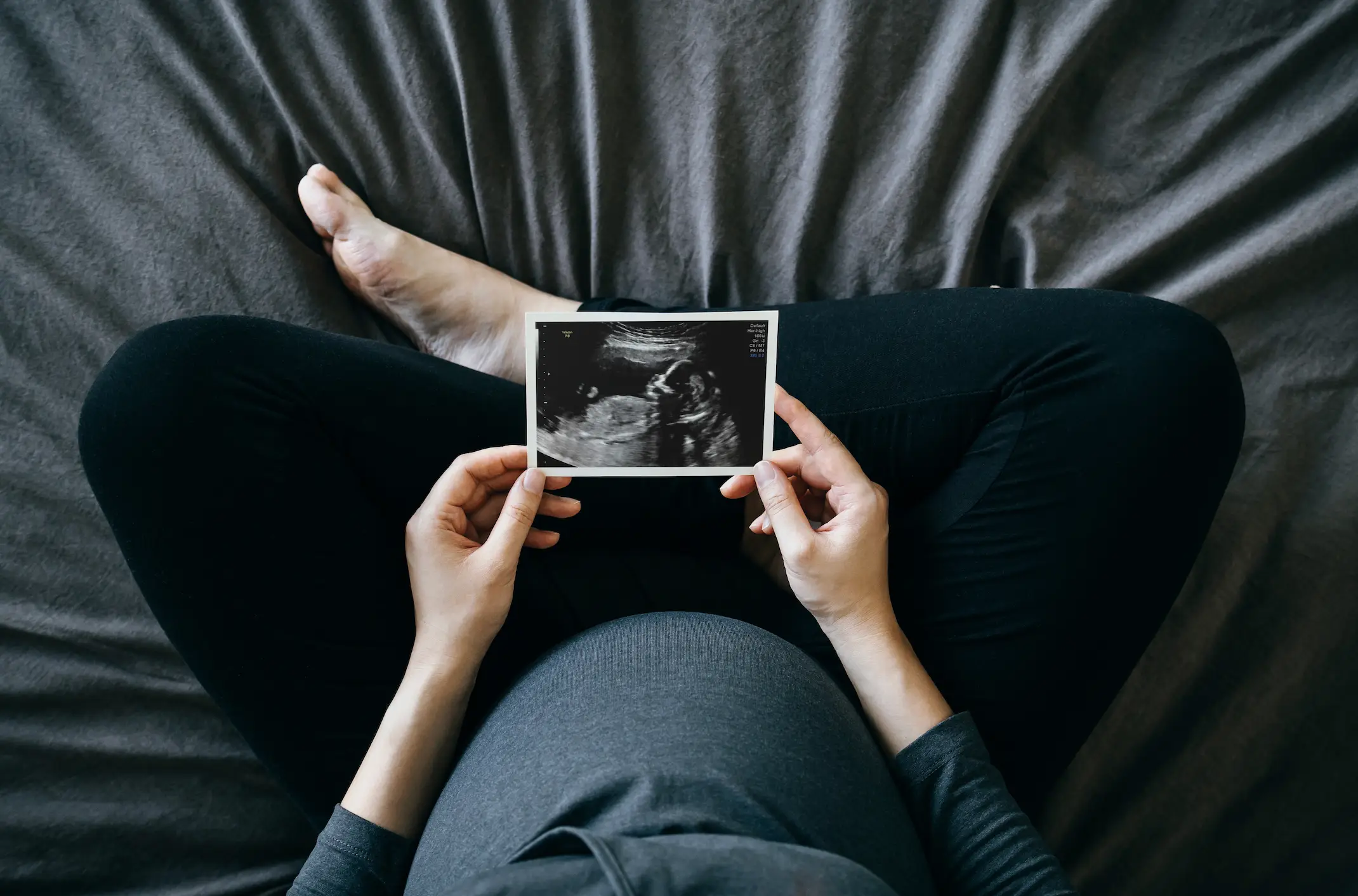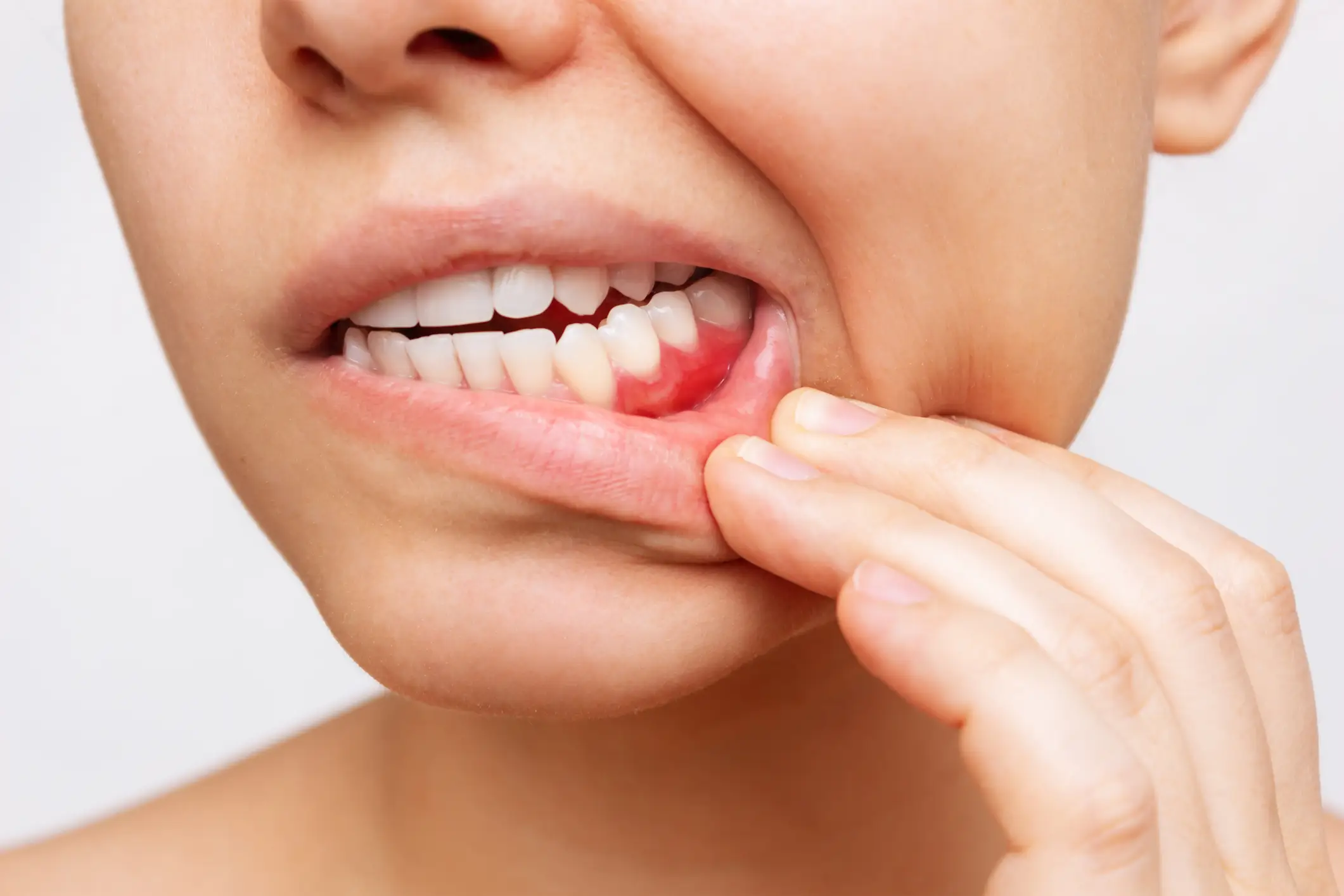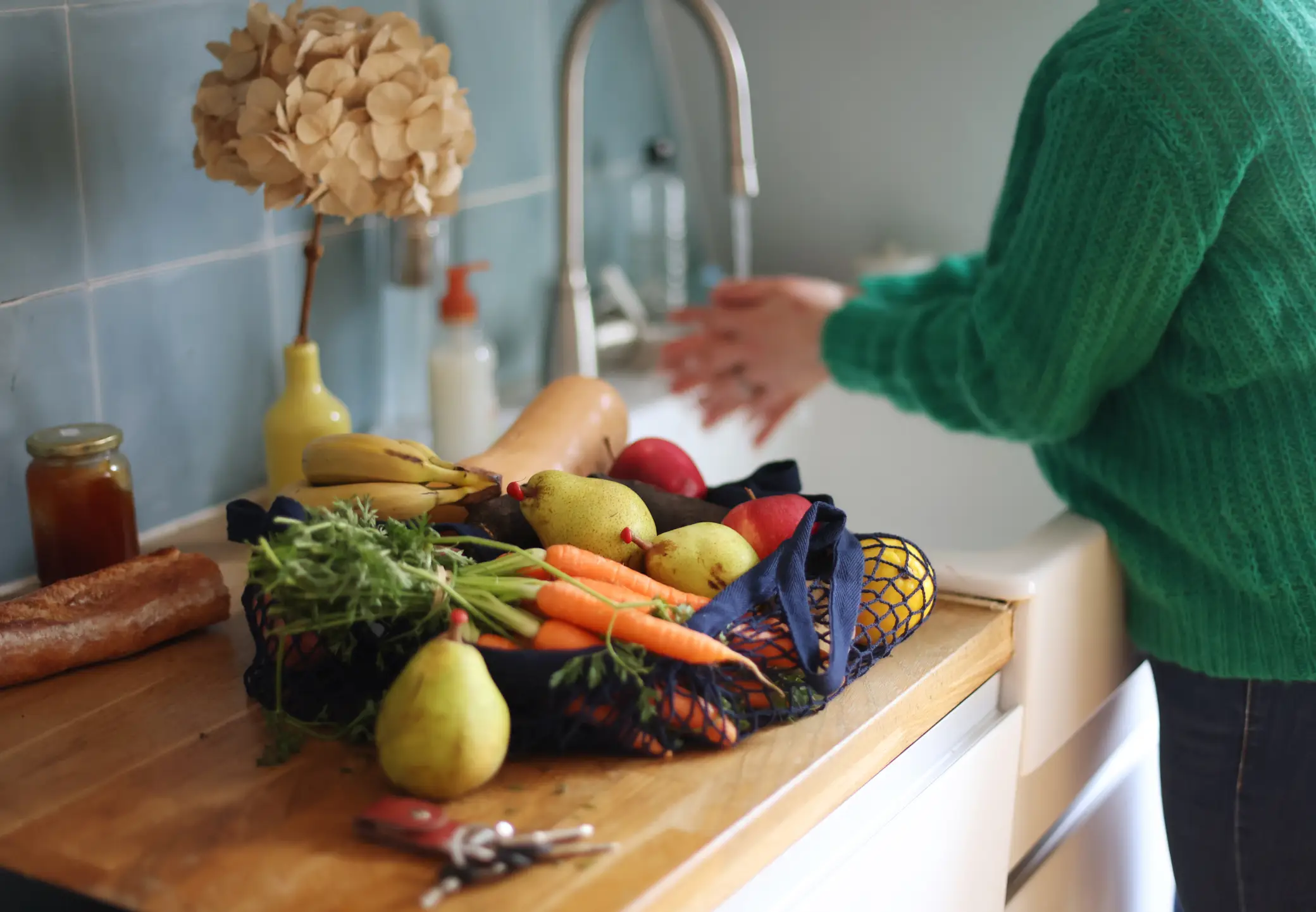
When you think about it, pregnancy is pretty miraculous, given that women are simply able to just create an entire new life within their bodies.
And, as we know, it's not a simple feat at all, with pregnancy bringing along with it a whole bunch of side effects - both physical and psychological.
Some, however, are better-known than others like pregnancy sickness, bizarre food cravings, feet swelling, mood swings, back pain, nausea, fatigue - the list unfortunately does go on.
But, some lesser-known side effects of pregnancy that no one seems to talk about nearly as much is all to do with your teeth with a dentist now coming forward to issue a warning to women and people who can conceive about how their gnashers may be affected while they've got a bun in the oven.
Advert
The Oral Health Foundation (OHF) has helpfully outlined a handful of things you need to know about your oral health in order to keep your mouth and pearly whites healthy during pregnancy.

Bleeding gums & gum disease
According to the experts, a change in hormonal levels during pregnancy means that your body will react differently to bacteria on your teeth - AKA plaque.
This can lead to swollen and bleeding gums and even to the more serious forms of gum disease such as periodontitis and pregnancy gingivitis.
"There have been proven links between gum disease and adverse pregnancy outcomes; with a greater risk of pre-eclampsia, premature birth and of giving birth to an underweight child," the dentistry experts state.
Due to this, it is therefore vital that pregnant women do not ignore any early signs of gum disease and get checked out by a dental professional straight away.
Treating gum disease
Now, if you do end up showing signs of gum disease, either periodontitis or gingivitis, the experts state that it's important that you don't panic, as it can be treated perfectly safely during pregnancy.
"This treatment involves a dental health professional performing a deep clean under the gums to remove any bacteria, the only risks associated with this is slight soreness of the gums which you would face even if you were not pregnant," OHF notes.

Prevention of gum disease
"As with anybody’s oral health, prevention is always much better than a cure when it comes to looking after your mouth, this is certainly the case when you are pregnant," OHF explains.
It's important to maintain a good oral health routine which should involve brushing last thing at night and at least one other time during the day with a fluoride toothpaste.
Additionally, one should ideally also be keeping up with daily interdental cleaning as well as regular visits to the dentist, the latter of which are free under the NHS if you are pregnant.
The importance of diet
Your diet is extremely important in general when it comes to keeping healthy and nourished during your pregnancy, but especially for your oral health.
Cutting down on how often and how much sugar you consume can 'dramatically reduce; your risk of tooth decay and is also beneficial to many other areas of your health.
OHF recommends: "Switching to fresh fruit and vegetables is a great way to look after your oral health and also look after you and your baby."

X-rays and anaesthesia
"Always tell your dentist if you are pregnant, especially if there is a chance that you will need an x-ray," the experts warn.
Usually, your dentist will wait until you've had the baby. This is because, while X-rays during pregnancy do not carry risks to your unborn baby, such as miscarriage or birth defects, it is the repeated exposure to radiation which can potentially damage the body's cells in the long run, increasing risk of developing cancer.
OHF adds: "X-rays are very low doses of radiation and during pregnancy carry a minimal risk of exposing the unborn baby to radiation."
Painkillers and antibiotics
And the last tidbit of advice is all to do with painkillers and antibiotics.
Now, it is generally safe for you to use common painkillers such as paracetamol and antibiotics when you are pregnant. But, with that said, it's best to speak to your doctor before taking any new medication while pregnant just to be on the safe side.
You can find out more about how to look after your teeth and gums during pregnancy on the official NHS website here.
Topics: Pregnancy, Health, Women's Health, Life, Advice, Parenting